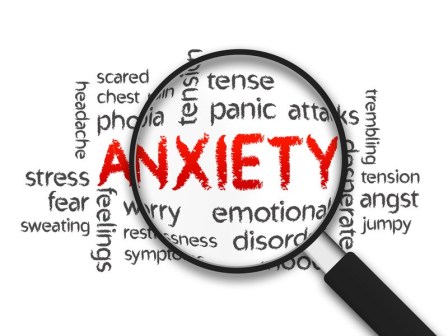Dehydration and Anxiety
Listen to Your Body's Need for Water
by Nancy Hearn, CNC
Note: As an Amazon Associate I earn from qualifying purchases.
Water is essential to every aspect of brain and nervous system function. Drinking enough water daily can help prevent anxiety, depression and other mood disorders.
Studies have shown that dehydration can trigger anxiety and nervousness.
When our brain detects inadequate water supply in the body, it signals its concern to our brain and nervous system.
Anxiety Signals Water Loss
Dr. F. Batmanghelidj, author of Water: for Health, for Healing, for Life, writes that when our body experiences local water loss or general thirst, our brain triggers specific sensations or perceptions.
These subtle thirst perceptions include:
- feeling anxious,
- feeling tired,
- feeling flushed,
- feeling dejected,
- feeling depressed,
- feeling restless,
- feeling heavy-headed,
- having irresistible cravings,
- and/or having a fear of crowds.
However, most people don’t recognize these initial signs of dehydration. Thus, they go about their busy lives without drinking more water.
This is not to say that all forms and degrees of anxiety are caused by dehydration, but chronic dehydration is almost always a contributing factor that leads to a series of other conditions related to severe anxiety and panic attacks.
Dehydration and Anxiety and Depression
Our brain tissue is about 85 percent water and brain function requires continual access to water. In addition, our brains have no way of storing water. Thus, it is necessary to replenish it throughout the day.
We also know that dehydration can lead to insufficient levels of serotonin, which is an important neurotransmitter. Low levels of serotonin have been associated with depression, anxiety and other mood disorders.
The amino acid tryptophan is converted to serotonin in the brain. However, when the body is dehydrated, the transport of tryptophan across the blood-brain barrier is deterred.
Dehydration also causes a shortage of the amino acid tryptophan in the body because of the body’s reduced ability to detoxify when there is inadequate water supply. The liver will then use more tryptophan as an antioxidant to help neutralize toxins.
Dehydration can also deplete other essential amino acids in the body. Studies have shown that a chronic shortage of amino acids can contribute to feelings of anxiety, irritability, as well as dejection and inadequacy.
Stress and Anxiety
Dehydration causes stress in the body, and stress then leads to further dehydration. It is a vicious cycle. And in many cases, the stress responses in the body can lead to varying degrees of anxiety.
The bottom line here is that drinking plenty of water when dealing with stress is an effective way to minimize its negative physiological and psychological effects.
In addition, if we experience anxious feelings or any of the other thirst perceptions mentioned above, the first thing we should do is drink 8 to 12 ounces of clean drinking water.
Obviously, drinking more water will not necessarily “cure” all types of anxiety. But proper hydration should definitely be part of a healing protocol, along with stress management.
Reference
F. Batmanghelidj, M.D.; Water for Health, for Healing, for Life; 2003.
Further reading . . .
Water and Brain Function - How to Improve Memory and Focus
Depression and Dehydration - Key Reasons They Are Linked
Dehydration Causes Stress and Stress Can Cause Further Dehydration
Return from Dehydration and Anxiety to Health Benefits of Drinking Water
If you would like to reproduce or republish this article or any other article on this site, feel free to do so but please include a reference or link to the article at WaterBenefitsHealth.com.
Sign Up for Our Monthly
Newsletter
Visitor Comments
"This was the best and most straight forward info on the net yet. I asked a question and got an answer that made sense. Thank you so much!" - Linderlinder
FINALLY!!! I have been wondering about this for years with no 'solid' answer. This is exactly what I've been wanting to know! Thank you for this share..." by Andy
"Thank you for the information, Nancy. I appreciate it. Your article and findings are very helpful, referring to dehydration." - Carolyn
"Lemon water is one drink both my wife and I can't drink. It upsets our stomachs. We are in our sixties and in very good health—well, better health now that we drink about 2 liters plus of water each day. It has made so much difference to our digestive systems and recovery every day. Thank you for your website and effort." - Rod



